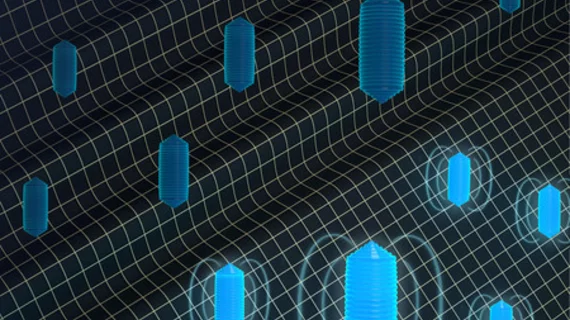'Erasable' MRI contrast agents could simplify diagnostic imaging, disease detection
Researchers at CalTech are developing "erasable" contrast agents that can "blink off" on command during an MRI to reveal their exact location inside the body, according to an April 25 press release from California Institute of Technology.
The research, led by George Lu, a post-doctoral scholar at CalTech, shows potential in erasing contrast agents.
"It's the same principle behind blinking bicycle lights," said study researcher Mikhail Shapiro, PhD, an assistant professor of chemical engineering at CalTech. "Having the lights turn on and off makes them easier to see, only in our case we just blink off the contrast agent once."
Nanoscale structures, or gas vesicles, are at the root of the new technology, according to the press release. The air in gas vesicle chambers react differently to magnetic fields compared to surrounding tissues, allowing them to stand out on MRI scans.
Testing methods in mice, Lu and his team found the gas vesicles were detected in MRI scans of the brain and liver. Researchers were then able to turn off the magnetic signals with high pressure ultrasound waves.
Gas vesicles can be genetically modified to target different types of receptors on cells, according to the press release, which can help make diagnostic imaging more efficient.
"Populations of gas vesicles can also be engineered differently—for example, one group might target a tumor while another would stay in the blood stream to outline blood vessels," according to the press release. "This would allow doctors and researchers to visualize two types of tissue at once."

